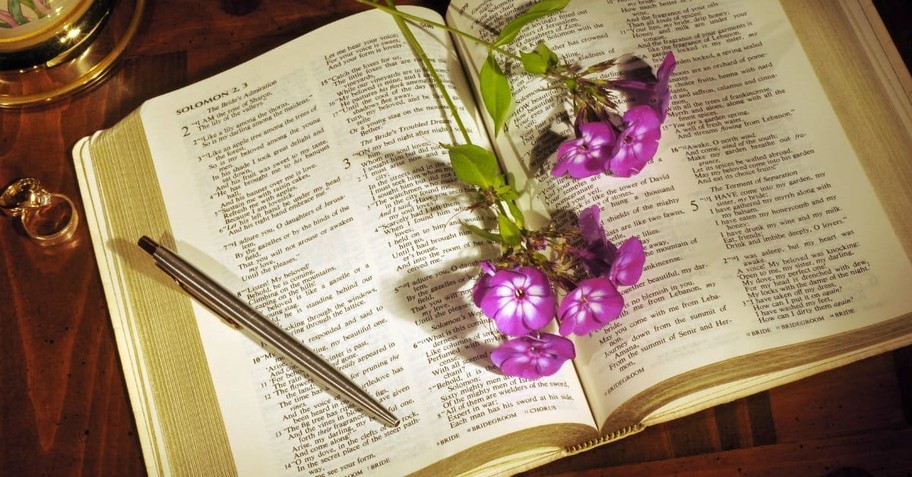Christian Dating: 3 Signs Your Yoking is Healthy

Whether you’re meeting for your second date, or an engagement looms around the corner, you’ll want to know if who you’ve paired yourself with will help your spiritual growth, opposed to hinder or detract from it.
Christian dating can come with a number of frustrations. The size of the dating pool shrinks significantly when we take into factor that our potential future spouse needs to love the Lord, have a personal relationship with Him, and emboldens us to grow in our own relationship with God.
Granted, yes, we can already avoid dating those who do not yet know God as their personal Savior (2 Corinthians 6:14).
Such relationships can lead to pain for both partners. After all, Christians need to place God at the center of everything, including marriage and dating. If the other partner does not do the same, they will struggle to maintain anything healthy under this major difference of doctrine.
But what about when we date other Christians? Surely our only criteria for dating shouldn’t be if he or she knows the Lord as their personal Savior.
Before you go on that next date or say yes to a proposal, make sure to evaluate the following criteria for a healthy yoking—and down the road—a healthy marriage.
Photo Credit: ©
First of all, what do we mean by “yoking”?
When I first encountered the term, my mind immediately went to how I order eggs at a restaurant (yolking . . . get it?).
Jesus, as well other prophets in Scripture, used the term yoking a few times. Jesus says he has an easy yoke (Matthew 11:30). Jeremiah wears a yoke to indicate to the Israelite people they will be under the rule of Nebuchadnezzar (Jeremiah 28:14). Galatians 5:1 uses the term “yoke of slavery.”
Yikes! Are we saying dating and marriage are slavery?
No, but this image would’ve immediately clicked in the minds of the audiences at the time. A yoke, a wooden or iron farming instrument, would bind two oxen together to complete a task together, usually pulling something like a plough.
Metaphorically, when Christians aren’t supposed to “yoke” with someone who will hinder their spiritual growth, it means marriage will bind you together. You will, in some sense, complete every task together. If one ox wants to pull one way and another in the other direction, you’ll get nowhere. Or worse, you’ll sever what binds you together.
We date to marry. We want to work together with our future spouses to grow together spiritually and to set an example for future generations (our children).
So how do we know the person we date provides an equal yoke?
Photo Credit: ©Thinkstock/jacoblund

1) They have enhanced your spiritual growth
Christians can have a hard time measuring spiritual growth. We can often forget our nature from a few years ago, or even a few months in the past.
Although no one can determine the true nature of another’s heart, you can use the following checklist to see if they help or stunt your growth:
- They bring up God and Christianity often in conversation: They show they have no shame when it comes to the Gospel (Romans 1:16). If a Christian has a healthy relationship with Christ, they cannot help but bring Him up in conversation. God plays such a vital role in their lives; they simply have to talk about His work. If you find yourself discusses more mundane topics than spiritual matters, you may need to reevaluate the relationship.
- They want to know about your story and your growth: As Christians, we should strive to ensure everyone finishes the race set before us (1 Corinthians 9:24). If they want you to grow in Christ, they will show interest in your spiritual story and in your future growth. If they seem apathetic when you hit rough spiritual spots, this could wave a red flag.
- They read the word of God every day: Granted, we all slip up on this one sometimes. But to combat the spiritual forces that seek to destroy us every day, we need to engage with Scripture. Do they share insights they’ve received from daily readings? Do they seem curious about your own findings in the Bible?
- They have plugged themselves into a local church: Not only do they attend Sunday services, but they seem interested in getting involved in church or local ministries. Someone with a vibrant relationship with Christ will want to serve others (Galatians 5:13). If they like to make a lot of excuses for why they can’t help out in ministry, or worse, if they don’t attend a church at all or consistently, this may show they need some spiritual maturation before they can further proceed in a Christian relationship.
Photo Credit: ©Unsplash/Jason Leung

2) They exhibit the love talked about in 1 Corinthians 13
During dating or even during the first couple of months of marriage, we try to put on our best faces and love the other as much as we can. But when they encounter trials, or just rough days, how do they react? When you mess up or fall short, do they exhibit:
- Patience: Do they acknowledge we all have growing to do, and we will fall short of the glory of God? Or, when you fail, do they grow aloof or annoyed with you?
- Kindness: Do they offer grace often? Or do they present several qualifying obstacles before you can earn their forgiveness?
- A Lack of Envy: When you meet success, do they cheer for you or grow cold with envy?
- Humility: Can they admit when they mess up? Do they ask for forgiveness, or do they project blame onto everyone else?
- Honor: How do they treat “the least of these”? Do they talk one way to a CEO and a different way to a server at a restaurant? Or do they respect everyone?
- Selflessness: Do they put others before themselves?
- Cool temperedness: When someone wrongs them, do they fly into a rage? Or do they weigh assumption of goodwill and attempt to see the events from the other person’s perspective?
- Forgiveness: How many grudges do they hold? Do they lament events that happened years ago, gossip, or keep a record of wrongs others have done?
- A Delight in Goodness: We all struggle with specific types of sin. But do they defend their sin they often fall prey to? Or do they rejoice in truth and admit when they fall short?
- Protection, Trust, Hope, Perseverance: Do they give up on people easily? What happens when they discover your imperfections?
Photo Credit: ©Thinkstock/PapaBear

3) You align with similar values
No two Christians will agree 100 percent on every issue. Some will focus on one issue more than others.
Granted, we do have to be on the same page in terms of essential doctrine: the Virgin birth, Jesus’ incarnation, His resurrection, etc.
But on the personal issues you value the most, do they align with you, or do they fall on the complete other end of the spectrum?
For instance, if you value praying together, and they prefer to pray in secret or do not feel comfortable with praying in a group setting, this may wave a red flag. Or if someone feels called to a life in missions and the other feels called to a 9 to 5 job in a cubicle. Or if you want to only adopt children, but they feel called have biological children only, this will lead to future division.
Photo Credit: ©GettyImages/PeopleImages

How do we measure up?
We often will use these as measuring sticks for those who we want to date or marry, but how do we personally measure up?
Do we exhibit kindness, patience, and forgiveness in our relationships? Do we settle or do we only pursue those who we know will align with values which we feel most passionate about?
Most importantly, do we help them grow in their faith, or do we seem to hold them back?
When evaluating these three criteria against ourselves, we may determine we need to embark on a season of singleness. During that time we can mature in the faith and learn to love others selflessly. At the end of that season, we may find ourselves more equally yoked with someone God has set before us, and we can help them to grow, rather than causing hinderances and hurt in their spiritual journey.
Hope Bolinger is a literary agent at C.Y.L.E. and a recent graduate of Taylor University's professional writing program. More than 350 of her works have been featured in various publications ranging from Writer's Digest to Keys for Kids. She has worked for various publishing companies, magazines, newspapers, and literary agencies and has edited the work of authors such as Jerry B. Jenkins and Michelle Medlock Adams. Her column "Hope's Hacks," tips and tricks to avoid writer's block, reaches 3,000+ readers weekly and is featured monthly on Cyle Young's blog. Her modern-day Daniel, “Blaze,” (Illuminate YA) just released, and they contracted the sequel for 2020. Find out more about her here.
Photo Credit: ©Unsplash-Sarah-Noltner
Originally published February 19, 2021.





